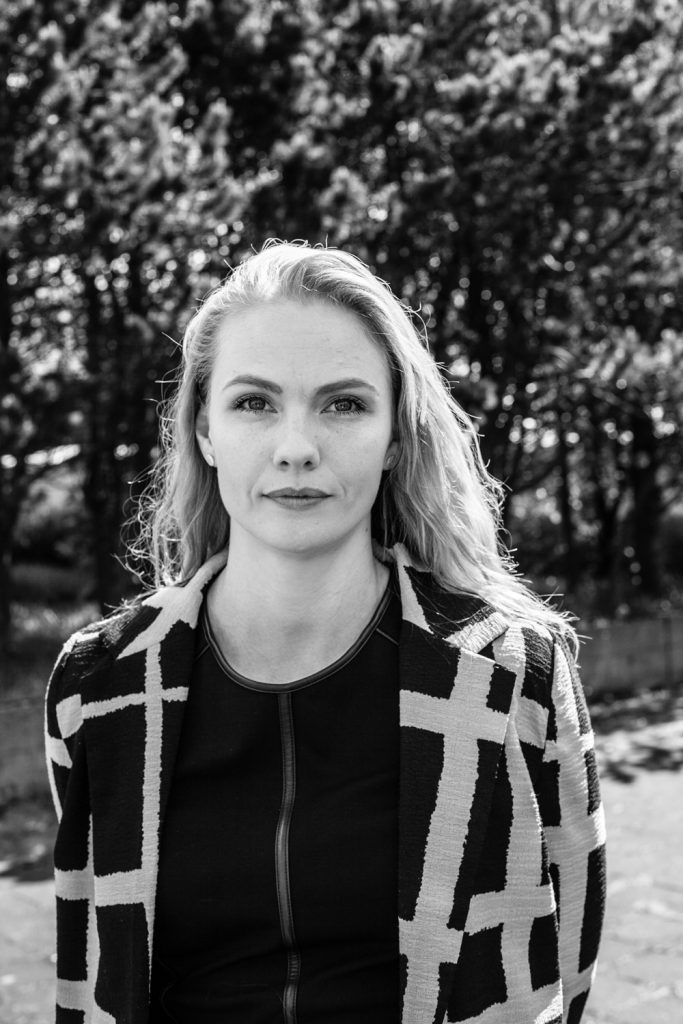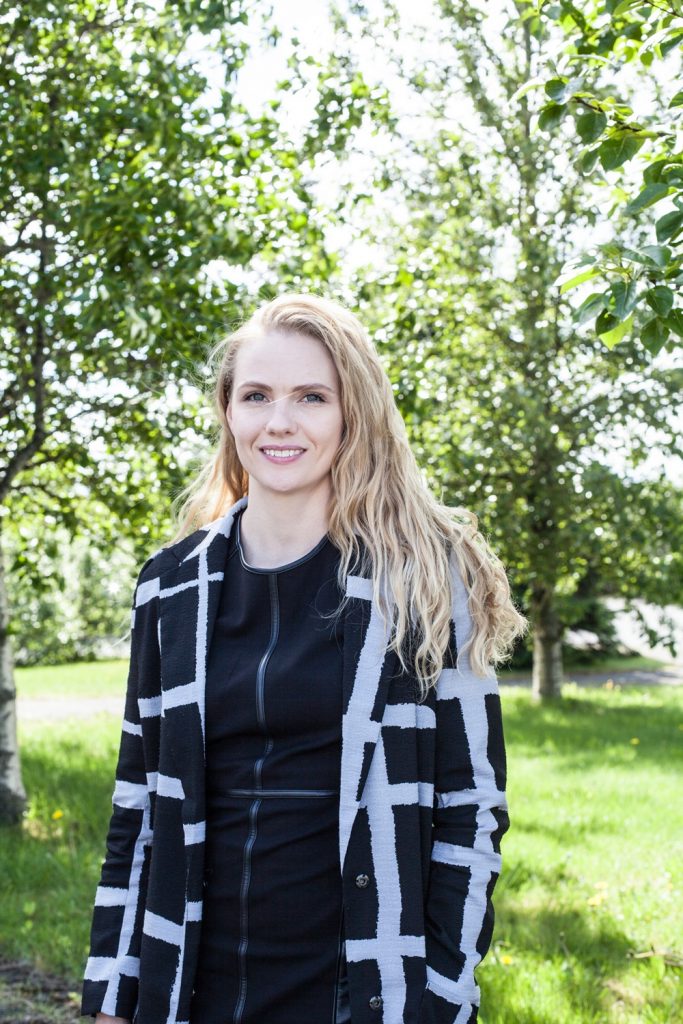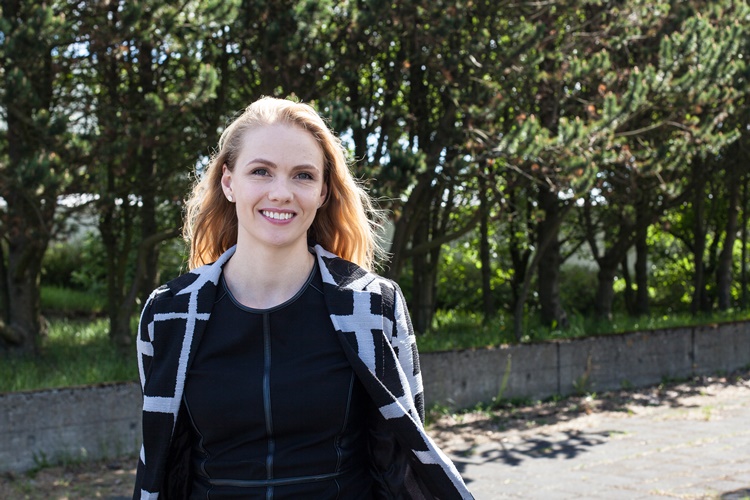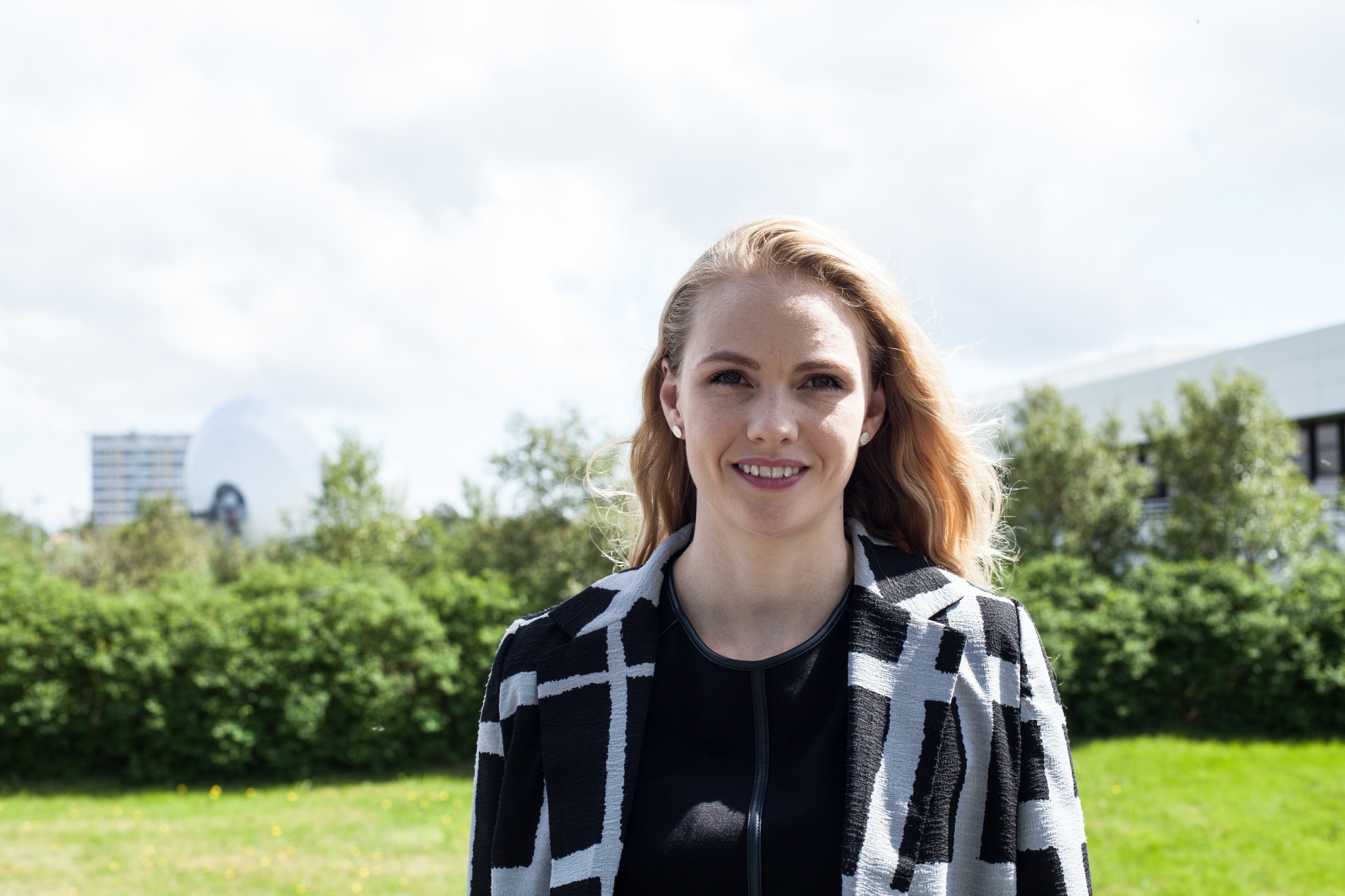Ásthildur Gunnarsdóttir is the vice chair of the national queer organisation, Samtökin ’78. Her agenda is first and foremost to get rid of stereotypical outlook on queer people. She knows what she is talking about as she was in heterosexual relationships until she was 28 years old and after that in a same-sex relationship and since then many people got frustrated trying to pin down if she was a lesbian, bisexual, pansexual or straight.
Ásthildur says that June 19, Women’s Rights Day, has a special meaning for her and she would like to urge every woman to use that day to consider and remember what has been achieved in the fight for equality but also to take stock of what is still undone.

To get to know her better I start by asking Ásthildur to tell me about herself? Who is she? “I‘m 31 years old with a BA in political science and I work for The Icelandic Chamber of Commerce, where I am in charge of public relations and publishing. I play volley ball and I‘m on the national women’s team. When I‘m not working or playing volley ball I try to meet my family and friends, go swimming, hiking or cycling, eat well and in general enjoy my life. You could say I‘m in a self-made training camp to build me up physically and mentally these days.
I may not have been very visible in my work for Samtökin ’78 but I got to know their operation when my friend Anna Pála Sverrisdóttir was chairman and she recruited me to work with her and other people on a project to help queer people in Uganda. Through that project I got to know many good people in the queer organisation and you could say that there lies the reason for why I am in this position today.”
Why did you decide to run for vice chairman? “A good man I know, who has worked a lot for the organisation, asked me if I would consider running for office. I already knew a lot of people active in the organisation and I saw this as an opportunity to get better connected and accomplish important changes in the fight for human rights.
It is sometimes said that a job like this is altruistic and I can agree with that, for the most part. We, the people who work for organisations like Samtökin ’78 get a lot of feedback and it‘s very rewarding to sit on the board of organisations like that.
Besides looking at these matters from the outside I looked inside myself too. Until I was 28 years old I had always been in heterosexual relationships but after that I was in a relationship with a woman for three years. I have wondered a lot about what effect this has had on me and my life and, to give you the short version, I have to say that these matters are far from simple.
“Even though sitting on the board has been quite demanding and hard from time to time I am really grateful for being on the board with an exceptional group of people.”
Are you lesbian or gay if you enter a relationship with someone of the same-sex after being in heterosexual relationships for years? Or are you bisexual or pansexual? Can you be bisexual but still feel much more attraction to the opposite sex or your own sex? What happens if you go back to being in a heterosexual relationship? Is there a silencing of your story and how do people talk about you?
Therefore I‘m very interested in working with changing all those definitions and stereotypes. I myself have experienced frictions towards bisexual and pansexual people from the queer community and also from the heterosexual community, though as weird as it sounds heterosexual people tend to be more understanding in these matters. All these thoughts and experiences pushed me into working against all these stereotypes and definitions and trying to get rid of them. I hope that someday, in the not so distant future, we will all be allowed to be who we are without having to take sides and define ourselves all the time.”
The last few months have been a turbulent time in the history of Samtökin ’78 and Ásthildur says that she could not have imagined that when she decided to run for office. “I think it‘s safe to say that we on the board didn’t picture this. We started with diverse ideas and wanted to put into action all kinds of projects which we will hopefully be able to focus on in the future. Among the things I wanted to accomplish when I decided to run for office was to create a stronger social environment for the older people in the organisation, examine the matters of asylum seekers, create a platform for people who come out in their thirties or later and work on the rights of queer athletes, which the board has actually been able to do. Samtökin ’78 have participated in making new educational guidelines in the training of coaches ÍSÍ, the National Olympic and Sports Association and it‘s great to see the progress we are making in that field.

Even though sitting on the board has been quite demanding and hard from time to time I am really grateful for being on the board with an exceptional group of people. We have really experienced how much it matters to stand together and show each other support and love within a group like this.”
What is it like to try to fight for the rights of all these diverse groups under one umbrella? “It has been very enlightening to get to know more about these different groups of people who come together under the umbrella of Samtökin ’78. I still have a long way to go in those matters but hopefully I will be able to connect with more people when the fire that now is raging dies down. I think it is very important that within the queer organisation we fight for the right of different groups and when you get to know people from these diverse groups you quickly realise that they have more issues in common than you would think.”
The 19th of June is dedicated to the fight for equality for women, do queer women have any different issues than straight women that they have to fight for or is it the same fight? “Queer women and women in general could unite to fight against standardised stereotypes of women and to dissolve the gender dominated society. The freedom to be able to be who you choose to be is a big part of the queer fight for equality and a part of that is the freedom of not having to be a normative woman. The same goes for men, of course.
Another issue that unites queer women and feminists is the fight against sexual violence. Within the queer society we see this sexual violence manifest itself with high rates of violence against trans women. Also we have to fight against domestic violence in same-sex relationships, which is often hidden and we really have to draw attention to it.”
Does the 19th of June have a personal meaning for you? Do you usually celebrate it in some way? “The 19th of June is a special day because then we celebrate that women got the right to vote. Even though I don‘t usually do anything to celebrate it, apart from the 100th anniversary of the right to vote last year, I think it serves as a good reminder for us all and I think it is important to use this day to think back, take stock of what we have accomplished but also to examine where we stand today and what we have to do in the future. Even though we have seen huge progress in the rights of women there’ still a lot we haven’t fully accomplished.
“Queer women and women in general could unite to fight against standardised stereotypes of women … The freedom to be able to be who you choose to be is a big part of the queer fight for equality and a part of that is the freedom of not having to be a normative woman.”
The pay gap between the sexes is a big issue, how few women sit on the boards of corporations, the possibilities for women to rise in the work market etc. I think it‘s urgent to change the laws on parental leave and work on increasing the opportunities to get day care for your children after parental leave. As the system works today I feel it has a negative impact on women’s participation in the work field and in the last few years it has become more rare that both parents take parenting leave.
Here I am about to become far too political but I really think a lot of the women who have been in the forefront of the fight for equality for women and I am really grateful to them. I have looked up to women like Vigdís Finnbogadóttir and in my mind she has a close connection to the cause of women‘s equality. I also have a mother who has been very active in the work field and I have always been told that I could do and be anything I wanted to, which of course is mostly right. I have come across some old-fashioned attitudes, of course, they are really ingrown to us all. Regardless of that I do believe that we are headed in the right direction, but we have to be alert and that applies to all of us.”
How do you plan to spend the 19th of June this year? “This year I will be spending the 19th of June in a training camp with the Icelandic national team in volley ball at Flúðir with a great group of fellow players, coaches and a physical therapist. We are in the process of preparing for the tournament of qualifying for World Championship and the Small Country Division of the European Championships which will be held in Luxembourg from June the 24th to the 26th.”

The 19th of June marks the Women’s Rights day. In honor of that GayIceland will for the next days publish articles based on interviews with queer women.
Photos by: Halla Þórlaug Óskarsdóttir.


